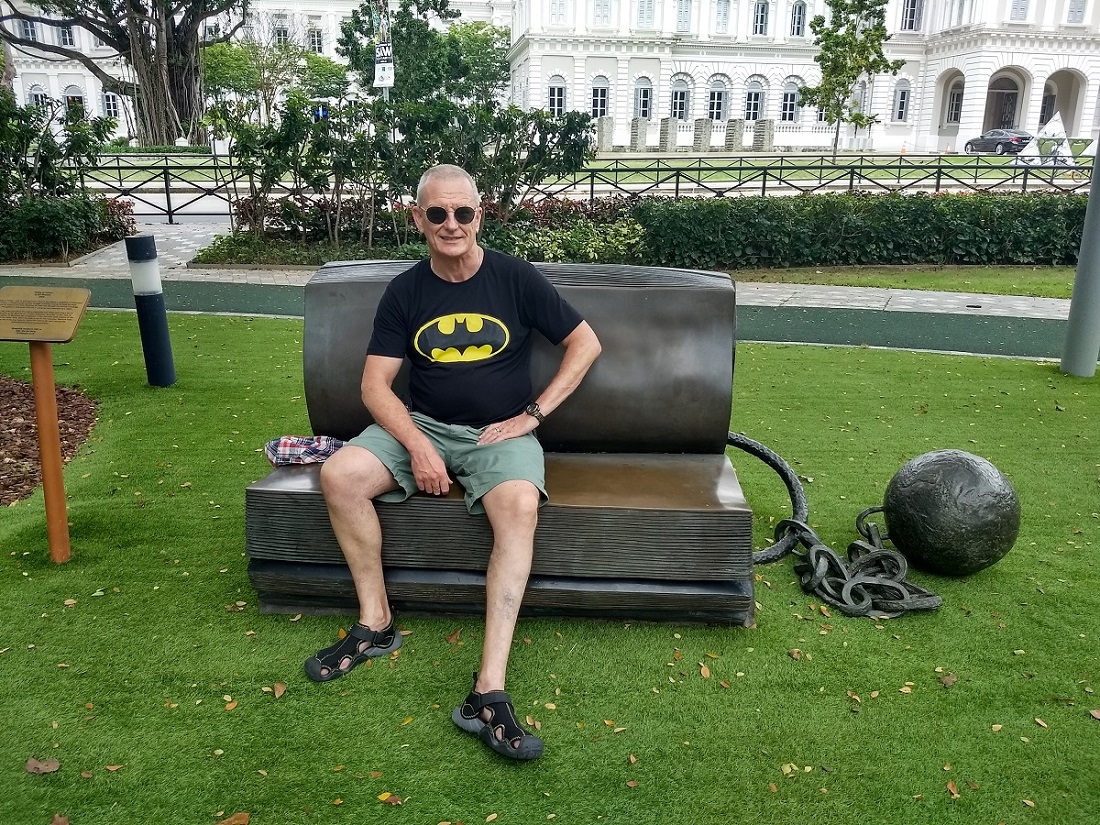
Renowned for the series of books he has written about Singapore’s Lee Kwan Yew dynasty, Associate Professor Michael Barr has carried a flag for international relations expertise at Flinders University for more than a decade. We spoke with him about his continuing research as he attempts to enter retirement.
What is your role and what does your work focus on?
Technically, I’m retired but I’m still a very active historian of Southeast Asia, and most particularly of Singapore. My focus is overwhelmingly on political history, to the point where I’m often presumed to be a political scientist.
Just to re-establish my loyalty to the tradition I was trained in, my most recent history of Singapore reached back as far as the 14th century, but I’m probably better known for my work on elitism, education, governance and the management of ethnicity in Singapore.
In the past few years, I have been doing some commentary on Singapore foreign policy, but this has never been a strong focus of my research.
What journey brought you to this point in your career?
When I returned to study as a mature-age student, I did Honours and then my PhD at the University of Queensland. My honours thesis started as an institutional history of Singapore’s national ‘superannuation’ fund (the Central Provident Fund) but finished up as a political history. My PhD thesis was a political history from the start – a study of the development of the political ideas of Lee Kuan Yew, Singapore’s first and most formidable prime minister. To my great surprise, it won a national prize and started my academic career, first at QUT, then back to UQ, then to Flinders in 2007. Somehow, I turned myself into an International Relations lecturer on the journey from Brisbane to Adelaide.
What do you love most about your work?
Now that I’m retired, I love being able to do the research and writing that I really want to do, without having to worry about institutional KPIs – at least in theory. I’m actually having as much trouble as ever finding time to do my basic research because I keep agreeing to invitations to join smaller projects and saying yes to requests for media commentary and professional service contributions. But I will get there. I have a wealth of archives with me and I just need to make the time to start working through it all.
What is something you are most proud of?
I consider the highlight of my career being elected as a Fellow in the Australian Academy of the Humanities. Also – and these are related – I’m rather pleased to have played a pivotal role in re-orienting and substantially rewriting the political historiography of Singapore. I’m also very chuffed to be contributing a chapter to the second edition of the Cambridge History of Southeast Asia. The first edition was published 30 years ago, so I figure that my contribution to the new edition might outlast me!
I am heavily involved in the Asian Studies Association of Australia, and I am still have an active role as a Deputy Editor of its journal, Asian Studies Review. And if I am going to mention achievements that I take pride in, my 6-years as Editor-in-Chief of ASR should get a mention. It is now a world class Asian Studies journal by every measure, and I played some role in getting it there.
What does a normal day look like for you?
I usually start the day with an early Mass (yes, Mass) or a 1½ mile swim, then breakfast, a bit of reading or housework, then get to work either at my computer or buried in a book. If I feel like taking the day off, I can do so without asking anyone’s permission, which is definitely one of the perks of retirement.
How do you like to relax or spend your spare time?
I confess that I read for pleasure (novels and superhero comics!) more enthusiastically than I do for work. I’m a good swimmer, which means I can enjoy it and work myself hard without any sense of struggle.

